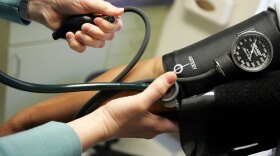
Alan Yu
Alan was a Kroc Fellow at NPR and worked at WNPR as a reporter for three months. He is interested in everything from health and science reporting to comic books and movies. Before joining us, he studied journalism at Northwestern University, and worked at Psychology Today, NPR's Weekend Edition, and WBEZ in Chicago.
-
When a law passed this January takes effect next year, health insurance companies will have three days — or sometimes 24 hours — to decide on prior authorization.
-
Part of a national trend, medical residents at Penn Medicine in Philadelphia push to form a union to demand better working conditions and higher wages. Child care is an important issue for many.
-
Beginning in April, a pandemic-era law that changed access to Medicaid is set to expire. Six million low-income people could lose access to health care.
-
NewsCity officials gave coronavirus vaccines to Philly Fighting Covid, whose brash CEO had no health care experience. After a WHYY investigation, the city cut ties with the group over alleged misconduct.
-
NewsMost preventive medical care that can't be handled via telehealth has taken a back seat in recent months, but that's starting to change. Here's what to ask when you schedule an in-person appointment.
-
NewsEmptier grocery store shelves are helping to cultivate a growing interest in home gardening.
-
NewsWhile the seaweed has a lot of things going for it in terms of nutrition and climate friendliness, the lack of infrastructure to process it and people's tastes have not been quick to adopt it.
-
NewsAmerican men face higher rates of suicide than women and higher rates of incarceration. In the age of #MeToo, some men are turning to each other to build healthy esteem that builds up others too.
-
Leah Penniman's new book teaches farming to address issues such as racism, health disparities and food access. She also traces some farming technologies back to their widely unknown African roots.
-
Election officials are trying to improve security to prevent foreign interference. But some states, like Pennsylvania, will have to make do with voting equipment many experts consider to be insecure.









